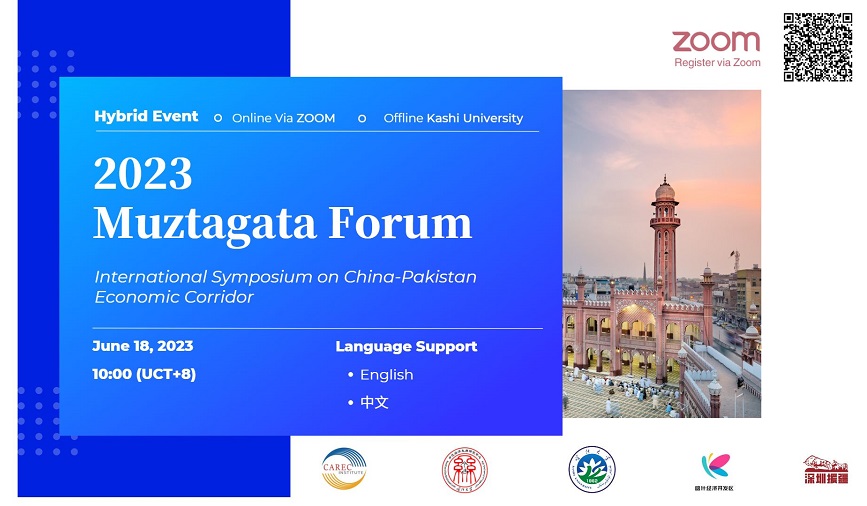Events
An International Symposium on the China-Pakistan Economic Corridor (CPEC) was held during the 2023 Muztagata Forum in Kashi, Xinjiang Uygur, on Sunday. The symposium aimed to commemorate the 10th anniversary of the CPEC and strengthen cooperation between the academic circles of China and Pakistan. Renowned scholars from China, Pakistan, Tajikistan, Kyrgyzstan, and other countries participated to discuss the opportunities, challenges, and approaches to promote the development of the China-Pakistan economic corridor.
Prof. Dr. Qaisar Abbas, the Vice Chancellor of the University of Sargodha, attended the session titled "Prospects for China-Central Asian Cooperation and CPEC under the Great Changes" via Zoom. In his address, Prof. Abbas highlighted the extraordinary and unwavering friendship between China and Pakistan, which has endured profound changes unseen in a century. He emphasized that their relationship, established in 1951, has remained strong due to mutual trust and shared values.
The Vice Chancellor provided historical context, noting that the relationship between China and Pakistan began during the peak of the Cold War. Despite their opposing political orientations, Pakistan recognized the newly formed People's Republic of China in 1951, becoming the first Muslim country to do so. Prof. Abbas underscored that this goodwill gesture laid the foundation for a relationship built on mutual understanding and trust, he added.
Dr. Qaisar Abbas also highlighted the key milestones in the bilateral relations, such as China's support during the 1962 Sino-Indian war, border demarcation, and China's assistance to Pakistan during the 1965 war with India. He emphasized China's crucial role in securing Pakistan's interests, including the release of Pakistani prisoners of war and supporting Pakistan's stance on the status of Kashmir.
The Vice Chancellor emphasized the shared perspective between China and Pakistan on regional and global developments. Both countries stand united against hegemony, unilateralism, and the use of force in international affairs. They advocate for a new world political order based on cooperation, inclusiveness, and true multilateralism.
Prof. Abbas highlighted the significance of China's Belt and Road Initiative (BRI) in addressing global challenges through development and connectivity. He referred to a World Bank report that stated the BRI could significantly contribute to global GDP growth, trade facilitation, poverty reduction, and international cooperation.
While acknowledging efforts by some Western nations to challenge China's rise, the Vice Chancellor emphasized the resilience of China-Pakistan friendship in the face of adversity. He expressed confidence in the future trajectory of China-Pakistan relations, stating that both countries would continue to stand by each other, fine-tuning their policies to protect their respective national interests while fostering a community of shared future for mankind.

